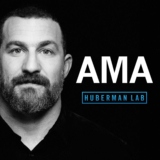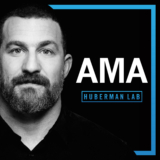In this episode, I explain a set of fitness tools gleaned from the 6-part guest series on fitness, exercise and performance with Dr. Andy Galpin. First, I ...
In this episode, my guest is Jeffrey Goldberg, MD, PhD, professor and chair of the department of ophthalmology at the Byers Eye Institute at Stanford ...
Welcome to a preview of the eighth Ask Me Anything (AMA) episode, part of the Huberman Lab Premium subscription. The Huberman Lab Premium subscription was ...
In this episode, my guest is Tim Ferriss — a five-time #1 New York Times bestselling author, technology investor and host of the iconic podcast, The Tim ...
In this episode, I discuss Methylenedioxymethamphetamine (MDMA), which is also commonly known as “ecstasy” or “molly,” including how it works in the brain to ...
In this episode, my guest is Mary Helen Immordino-Yang, EdD, professor of education, psychology and neuroscience at the University of Southern California and ...
Welcome to a preview of the seventh Ask Me Anything (AMA) episode, part of the Huberman Lab Premium subscription. The Huberman Lab Premium subscription was ...
In this episode, I explain how medications such as Adderall, Ritalin, Vyvanse and other stimulants work to increase focus and treat ...
In this episode, my guest is Robin Carhart-Harris, PhD, distinguished professor of neurology and psychiatry at the University of California, San Francisco. He ...
In this episode, my guest is Susanna Søberg, PhD. She earned her doctoral degree at the University of Copenhagen in Denmark, researching the effects of ...
- « Previous Page
- 1
- …
- 19
- 20
- 21
- 22
- 23
- …
- 35
- Next Page »



